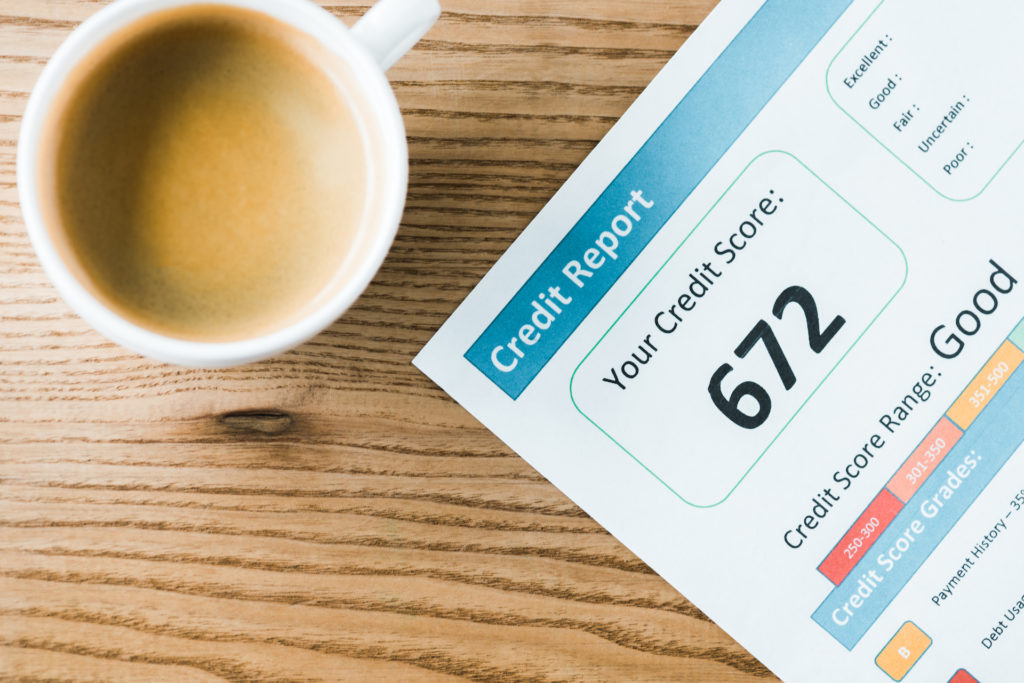
If you’re in the market for a new apartment, chances are you’ve had to fill out at least a rental application or two. Before a landlord or property manager accepts your application and you can move in, they will often run a credit check to get a credit report on a potential renter. Your credit report could therefore make or break your application.
Learn about credit reports for renters and why they matter so that you’re more likely to get the next apartment you apply for.
What is a credit score and why does it matter?
Let’s start with the basics. What is a credit score and why does a credit report for renters matter?
A credit score is a number assigned to each person to demonstrate creditworthiness. The score ranges from 300 to 850, and the higher the number, the better your credit score is. Landlords and potential lenders often look up a consumer’s credit report to learn whether a potential renter or borrower is trustworthy and likely to pay their rent or repay their loans in a timely way.
This credit score system was designed by the Fair Isaac Corporation and is also known as your FICO score. It is the most commonly used way to assess someone’s credit score.
Your credit report can significantly affect all aspects of your financial life, including your ability to rent an apartment or house. As a general rule of thumb, landlord and property managers typically expect a potential renter to have a credit score of at least 640 or above. If your credit score is lower than that, it may be difficult to find an apartment to rent. You may also be required to pay a higher rate on mortgages or have a shorter repayment term on other kinds of debt. You can always write a letter explaining your low credit score to a landlord if there’s an explanation for such a low number.
What is a credit report for renters?
In addition to your overall credit score, a potential landlord may look up your broader credit report. This report contains more detailed information about you as a borrower and your rental history.
Aside from your credit score itself, there are a few other pieces of information that a landlord will be looking at in your credit report. They will probably be interested in knowing whether you have ever filed for bankruptcy, been evicted, broken a lease, convicted of a crime, and whether you have been sufficiently financially active to establish your own credit history. Having any of these on your credit report may be a reason for a landlord to accept or reject your rental application.
How is my credit score calculated?
Five main factors go into every credit score:
- Payment history
- Length of credit history
- Types of credit
- New credit
- Total amount owed
There are three major credit reporting agencies in the U.S. that track consumers’ credit scores and reports: Equifax, Experian, and TransUnion. Your score could vary slightly among the three credit bureaus, but overall, each of the three uses the same factors to calculate your credit score.
How can I improve my credit score?
If you’re trying to rent a new apartment, first make sure that you look up your credit score before you fill out a rental application. You are allowed to get one free credit report from each of the three credit bureaus every year, thanks to the Fair Credit Reporting Act (FRCA). Many credit cards or banks will also provide you with a free credit report if you have an account.
Tracking your credit report gives you the opportunity to fix any potential errors before a possible landlord sees it. You are able to dispute potential mistakes via the three main credit bureaus. Give yourself a couple of months to clear up any discrepancies, since the credit bureau has 30 days to respond to and correct erroneous information after you submit a claim by phone, email, or online.
If your credit score isn’t great, there are several things you can do to improve it. Paying your bills on time, paying down your debts to reduce the amount of overall debt you owe, and managing your credit cards effectively will all help to improve your credit score. If you don’t have a credit card, you’ll want to get one to establish a credit history, but don’t overspend or open up lots of accounts in the hopes of improving your credit score.
Since all of these strategies take time to actually improve your credit score, make sure you check your credit score periodically, even though you may not be in the market for an apartment at the moment. This will give you enough time to work on your score if you find that it’s lower than you had hoped.
How to rent an apartment with no credit or bad credit
While having no credit history or bad credit can make renting more difficult, don’t despair. There are still things you can do to make up for poor credit in your application. For example, many landlords or property managers will allow a friend or family member who has good credit to co-sign a lease with you, guaranteeing that they’ll pay the rent if you don’t. Getting a guarantor is also an option. If you have significant savings, you could also offer to pay several months’ rent upfront as a guarantee or pay a larger security deposit.
Learn how to get a tenant credit report and what your credit report means before you fill out your next apartment rental application.
Cover image via iStock.com/LightFieldStudios



